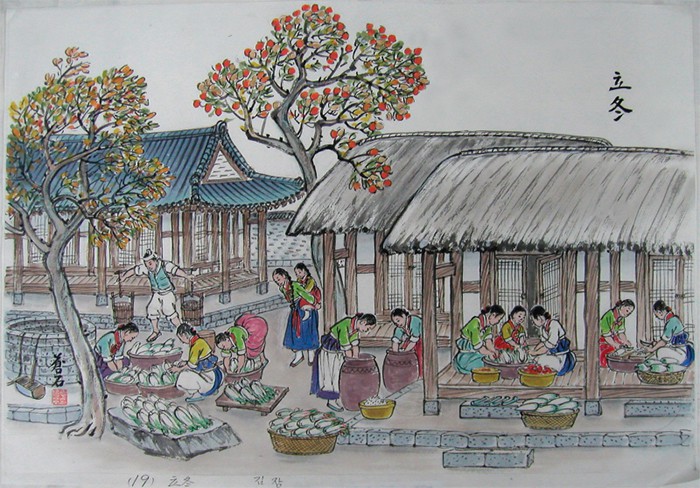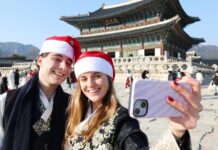Ipdong (입동, 立冬), or the “Onset of Winter,” falls on Monday, Nov. 7, this year. It marks the beginning of the ninth of 24 solar terms throughout the year. Ipdong generally falls on Nov. 7 or 8 on the Gregorian calendar, and always during the 10th lunar month of the year.
Ipdong begins a fortnight or so after the beginning of the previous solar term, Sanggang (상강, 霜降), the “Fall of the Frost,” which was on Oct. 23 this year, and about a fortnight or so before Soseol (소설, 小雪), the “First Snow,” which will be on Nov. 22 this year.

The day of Ipdong falls on Monday, Nov. 7, this year and marks the beginning of winter according to the traditional farming calendar.
White radishes and cabbages are harvested around Ipdong and households start to prepare their winter stock of kimchi. Winter kimchi is said to be the tastiest of all the many kinds of kimchi as long as it’s prepared no more than five days before or after Ipdong.
In traditional farming communities, a number of rites were observed around Ipdong, usually between the 10th and 30th days of the 10th lunar month, which are Nov. 9 and Nov. 29 this year. These rites consist of presenting rice cakes that were prepared with newly-harvested grain, along with other sacrificial offerings, to the altars that were set up in the main room of the home, the barn and the ox stables.
Another custom, called chigyemi (치계미, 雉鷄米), or “Pheasant, Chicken and Rice,” refers to the banquets hosted for the elderly in the community in order to honor their age and experience. Such banquets could take place on Ipdong (Nov. 7, 2016), or else on the winter solstice (Dec. 22, 2016) or on the day of Jeseok (the last day of the lunar year, Jan. 27, 2017). If economic conditions didn’t allow a big feast, the elderly would be treated to a simpler meal, such as dorangtang mudfish soup (도랑탕).
In some areas, Ipdong was associated with fortune telling, known as Ipdong bogi (입동 보기), or “Ipdongclairvoyance.” The purpose of this practice was to learn about the future outcome of farming and to predict the weather for the upcoming winter. If it were cold on the day of Ipdong, for example, it signified that a harsh winter was ahead.
So though winter doesn’t actually begin until the winter solstice (Dec. 22, 2016), farming families in traditional agricultural communities would begin their winter preparations early in the season. Stay warm out there.
By Gregory C. Eaves
Korea.net Staff Writer
Photo: National Folk Museum of Korea
gceaves@korea.kr























